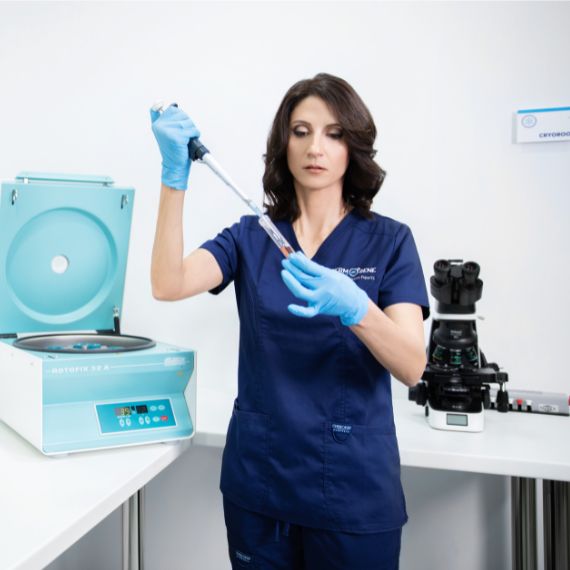PCR of semen
PCR (Polymerase Chain Reaction) is a method used to detect the DNA of microorganisms or viruses in semen, even in very small quantities. This means that the presence of pathogens can be identified with high sensitivity, allowing for a positive result with as few as 500 copies of their DNA.

Why is this examination important?
While classical methods are commonly used to detect pathogenic microorganisms, there are situations where more specialized molecular techniques like PCR are necessary. This is particularly true for viruses such as HPV (Human Papillomavirus), HSV 1 and 2 (Herpes Simplex Virus), HHV-6 (Human Herpesvirus 6), and others, where PCR is often the only reliable detection method.
PCR (Polymerase Chain Reaction) allows us to detect the DNA of microorganisms or viruses, making it possible to identify their presence even in minuscule quantities. Specifically, as few as 500 copies of their DNA can be detected, yielding a positive result.

